- الأدوية اللاوصفية
- الأدوية الوصفية
كوفيرام 5/10 مجم 30 قرص
82.90 ر.س
غير متوفر في المخزون
0
لا يوجد احد يشاهد المنتج الأن!
التصنيفات: الأدوية و العلاجات, الأدوية الوصفية, أدوية الضغط و القلب
الوصف
Perindopril 5 mg/ Amlodipine 10 mg Tablets
What Perindopril/ Amlodipine is used for:
Perindopril is a medicine that belongs to a class of medications known as “angiotensin converting enzyme (ACE) inhibitor”.
Amlodipine belongs to a class of medicines known as” calcium channel blockers”.
One tablet of this product replaces two separate products of Perindopril and Amlodipine.
This combination of active ingredients acts by widening the blood vessels making it easier for your heart to pump blood through them. This medicine is used for the following indications:
to treat hypertension (high blood pressure).
to decrease the risk of cardiac events, like heart attack, in patients with coronary artery disease.
Do not take Perindopril/ Amlodipine:
If you have an allergy to perindopril, or amlodipine, or any of the other ingredients of this medicine, or to any other ACE inhibitor or calcium channel blocker.
If you have previously experienced angioedema to perindopril or another ACE inhibitor.
Angioedema is a condition that is manifested by signs and symptoms like swelling of the face, throat or tongue, wheezing, intense itching or severe skin rashes.
If a family member has previously experienced angioedema to perindopril or another ACE inhibitor.
If you are being treated with sacubitril/valsartan (used for heart failure).
If you are pregnant or plan to become pregnant.
If you have diabetes mellitus or kidney problems and you are taking aliskiren.
If you have renal artery stenosis (artery supplying blood to the kidney becomes narrow).
If you have aortic stenosis (main blood vessel that leads to the heart becomes narrowed).
If you have severe low blood pressure.
If you have unstable angina (pain or discomfort in the chest that lasts for more than a few minutes or happens at rest and may not be decreased with medication).
If you have cardiogenic shock (a severe and sudden decrease in blood flow and blood pressure through the body because of poor pumping of the heart muscle).
If you have heart failure (heart muscle is not able to pump blood properly to the body) within the first 28 days following a heart attack.
Warnings & Precautions:
Stop the medication right away and talk to your doctor or pharmacist if you develop allergic reactions such as shortness of breath, skin rash, swelling of the face or neck, decreased blood pressure and dizziness.
Your doctor may recommend limiting your alcohol and salt intake, following a healthy diet, exercising and stopping smoking.
Talk to your doctor if you have hypertrophic cardiomyopathy (heart muscle problem), aortic stenosis (main blood vessel that leads to the heart becomes narrowed) or renal artery stenosis (artery supplying blood to the kidney becomes narrow).
Talk to your doctor before starting this medicine if you have liver or kidney problems or if you are undergoing dialysis.
Talk to your doctor before starting this medicine if you have diabetes.
Talk to your doctor before starting this medicine if you have collagen vascular disease (disorder of the connective tissue) like scleroderma or systemic lupus erythematosus.
Talk to your doctor before starting this medicine if you have high potassium levels or are following a salt restricted diet or using salt substitutes that have potassium.
Talk to your doctor before starting this medicine if you are to have LDL apheresis (cholesterol removal from your blood using a machine)
Talk to your doctor before starting this medicine if you are due to have a surgery and/or anesthesia.
Talk to your doctor before starting this medicine if you are going to undergo a desensitization therapy to decrease the effects of wasp stings or a bee allergy.
Talk to your doctor before starting this medicine if you are intolerant to some sugars.
Talk to your doctor before starting this medicine if you have recently suffered from vomiting, diarrhea or are dehydrated.
Talk to your doctor before starting this medicine if you are pregnant or plan on getting pregnant.
Talk to your doctor before starting this medicine if you have primary hyperaldosteronism (abnormally high levels of aldosterone hormone in your blood).
Talk to your doctor before starting this medicine if you are undergoing, or you are due to undergo extracorporeal treatments (therapies where your blood is treated outside of your body).
Talk to your doctor before starting this medicine if you have heart problems or severe increase in blood pressure.
Do not share your medicine with anyone and do not use it for other purposes.
Possible Side Effects:
Possible rare but serious side effects include signs of an allergic reaction like, rash and itching, angioedema (swelling with a red colored rash below the surface of the skin in a localized part of the body on or near the hands, feet, lips, or eyes), Stevens-Johnson syndrome (a rare, serious disease of the skin that usually begins with signs of a flu and followed by a severe and painful skin rash with blisters), fast or irregular heart rate and difficulty breathing.
Common side effects include dizziness, headache, vertigo, vision problems, pins and needles sensation, tinnitus (noises in your ears), cough (dry and irritating), swelling of ankles, feet, hands or joints, edema (swelling and fluid retention), chest pain, difficulty breathing, dry mouth, nosebleeds, erectile dysfunction, changes in heart rate or rhythm (fast or irregular), nausea, diarrhea, constipation, indigestion, taste changes, vomiting, abdominal pain, low blood pressure, blood vessel inflammation, flushing, tiredness, fatigue, drowsiness and muscles cramps.
Other medicines and Perindopril/ Amlodipine:
Tell your doctor or pharmacist if you are taking, have recently taken or might take any other medications including over the counter non-prescription medicines, prescription medicines, herbal supplements, vitamins and supplements.
If you are taking blood pressure medications (e.g. aliskiren and angiotensin II receptor blockers also known as ARBs or sartans like telmisartan, valsartan, irbesartan).
If you are taking diuretics (used to increase urination).
If you are taking NSAIDs (used to reduce inflammation, pain and fever like ibuprofen) or high dose aspirin.
If you are taking medicines used to treat diabetes (e.g. metformin or insulin).
If you are taking lithium (used for depression or mania).
If you are taking eplerenone (used to treat heart failure).
If you are taking potassium-sparing medicines (like spironolactone, amiloride, triamterene), potassium-containing salt substitutes or potassium supplements.
If you are taking medicines used to treat mental disorders such as anxiety, depression and schizophrenia (e.g. antipsychotics and tricyclic antidepressants).
If you are taking heparin (blood thinner).
If you are taking procainamide (used to treat irregular heart beat).
If you are taking estramustine (used to treat cancer).
If you are taking allopurinol (used to treat gout).
If you are taking gold salts, especially when given into the vein (used to treat signs and symptoms of rheumatoid arthritis).
If you are taking trimethoprim (used to treat infections).
If you are taking vasodilators including nitrates (medicines that widen the blood vessels).
If you are taking medicines used to treat asthma, shock and low blood pressure (e.g. ephedrine, adrenaline or noradrenaline).
If you are taking antibiotics like erythromycin, rifampicin and clarithromycin.
If you are taking antifungals (e.g. ketoconazole, itraconazole)
If you are taking baclofen or dantrolene (used to treat muscle stiffness in diseases like multiple sclerosis).
If you are taking antiepileptics (used to treat convulsions e.g. phenytoin, carbamazepine and phenobarbital).
If you are taking S. John’s Wort (used to treat depression).
If you are taking corticosteroids or immunosuppressants (used to reduce your body’s defense mechanism following a transplant or for the treatment of autoimmune disorders like, ciclosporin and tacrolimus).
If you are taking simvastatin (used to treat high blood cholesterol).
If you are taking tetracosactide (used to treat adrenal insufficiency).
If you are taking alpha-blockers (used to treat an enlarged prostate e.g. prazosin, alfuzosin, tamsulosin, doxazosin and terazosin).
If you are taking amifostine (used to prevent or decrease adverse reactions caused by other medications or radiation therapy used to treat cancer)
If you are taking medications used to treat HIV infection (e.g. ritonavir and indinavir).
If you are taking mammalian target of rapamycin (mTOR) inhibitors (used to prevent rejection of organ transplants (e.g. sirolimus, temsirolimus).
If you are taking sacubitril/valsartan (used to treat long-term heart failure).
How to take Perindopril/ Amlodipine:
Adults
Usual recommended dose is 1 tablet orally once daily.
Your doctor will determine the specific dose that you need to take.
Take exactly as prescribed by your doctor.
Check with your doctor or pharmacist if you are not sure.
Children
Use of this medicine is not recommended in children.
Elderly
Recommended starting dose must always be 2.5 mg of perindopril arginine and 2.5 mg of amlodipine taken as separate tablets in elderly patients.
Usual recommended dose is 1 tablet orally once daily.
Do not eat or drink any grapefruit containing products when taking this medicine. Grapefruit may increase the concentration of amlodipine in your blood which may lead to excessive drop in your blood pressure.
Take tablet at the same time every day, unless prescribed differently by your doctor.
Take tablet before food in the morning.
Swallow tablet with a full glass of water.
How to store Perindopril/ Amlodipine:
Keep out of the reach of children and pets
Keep the medicine in a cool, dry place away from light at a temperature below 25°C
Do not keep your medicines in a bathroom or close to a sink
Do not use beyond the expiry date mentioned on the box
Keep medication in its original pack to protect it from moisture and light
Do not use damaged pills
Do not dispose medication in the wastewater or household waste
مراجعات (0)
كن أول من يقيم “كوفيرام 5/10 مجم 30 قرص” إلغاء الرد


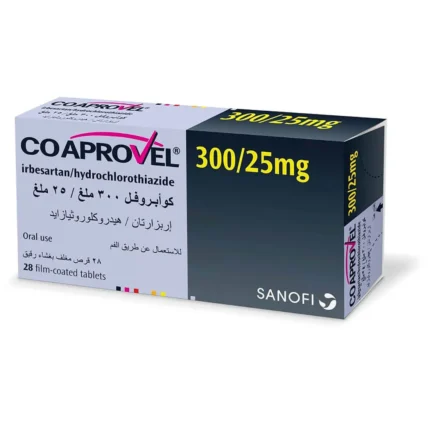
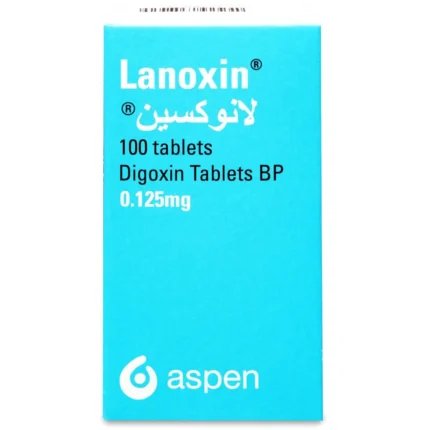

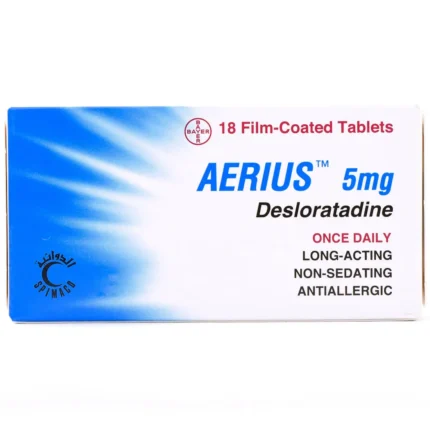
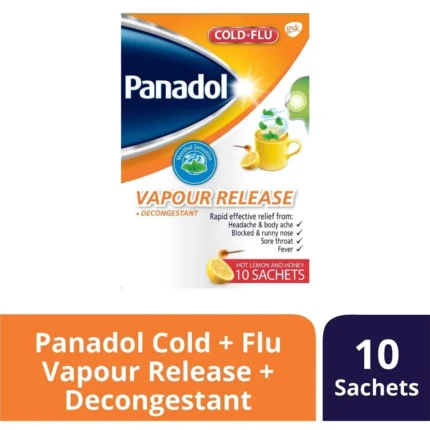

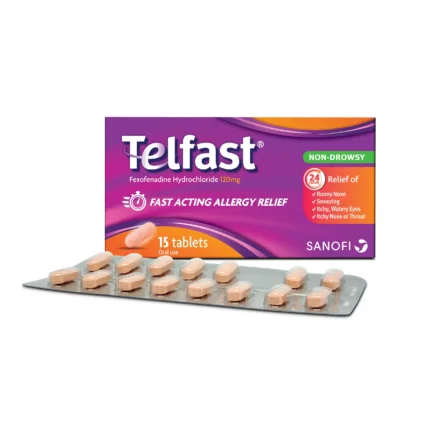
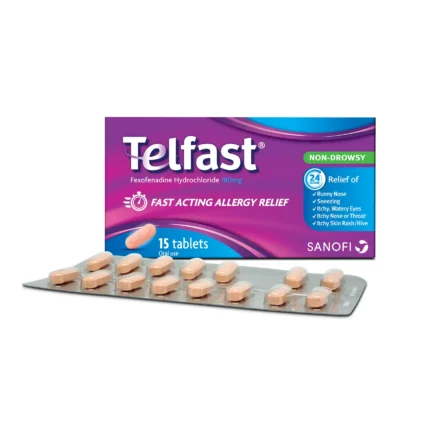

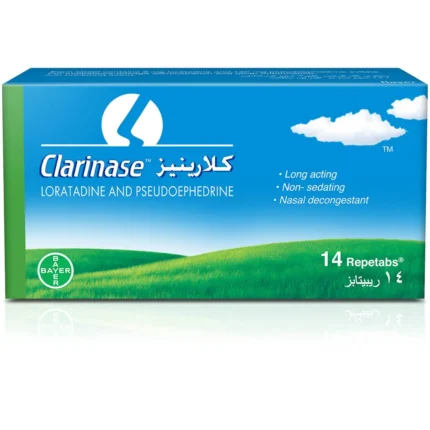
المراجعات
لا توجد مراجعات بعد.